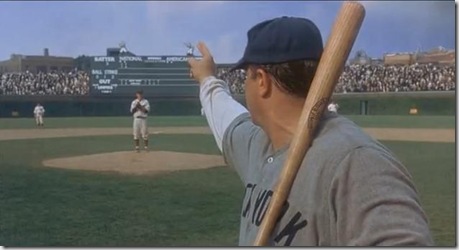I sent my girls to a volleyball camp at the local military institute. The first day I showed up early to retrieve them. So I got a chance to wander the halls of their gym for a little bit.
Interesting stuff, this phenomenon of school pride and sport. Animal mascots, team colors, the whole lot. Lots to think about.
What caught my attention this time was the school’s sports motto.
Victory with Honor.
Heroism nowadays has a fuzzy meaning. Sometimes it just means “people we really want to sentimentalize.” Dads and Moms are the real heroes, we say. Or cancer victims.
Now, even if we had a clearer understanding of heroism, understood sub species aeternitas it still may be true that the real heroes are Dads and Moms and cancer victims. But in the here and now, the older, clearer understandings of heroism make it sound like gibberish to talk about how the real heroes are, say, single moms.
As far as I can tell, the oldest concept of a hero was someone who recklessly strove to prove they were the best. They were daring, took risks ordinary men could not, and got results ordinary men could not either. Someone like Mike Fink is an authentic modern expression of the classical Hero.
But one common way–maybe even a required way-for a hero to prove himself was purposefully increasing the difficulty level. Heros deliberately made their path to victory more difficult, because their object was not just to win, but to prove themselves by winning.
So you have heroes who
- fought in single combat when they had an army with them
- fought in single combat against a giant without armor
- signaled exactly which part of the ball park they would hit their home run
In stories, its a cliché that the hero lets the bad guy get back up. Or the hero discards his extra weaponry or support to make the fight with the villain fair. This is not to show what a nice guy the hero is. That is a secondary purpose, if it is a purpose at all. The hero gives up an advantage that no one would fault him for having. No, the hero’s niceness is not about his moral character. It is about his heroism. The hero gives the villain extra chances because the hero proves himself a hero that way. Only a hero can still win when he’s given up his assets. Superman is much more goody-goody than Batman because Superman is much more powerful.
The phenomena is akin to countersignaling. The hero shows that he is such a goshalmighty hoss that he does not need the traditional accoutrements of winning to win.
Seen in that light, Victory with Honor is a boast. We are such red-blooded American SOBs, the motto says, that we can handicap ourselves with fair play and gentlemanly punctilios and still stomp you flat. This chest, the motto says, was made for thumping.
No man has ever gone farther in this direction than God. By the terms of the game he set, Satan wins if any of us sin in the least little bit. Without repentance, men and women
can be corrupted merely by compromizing them: that is, by persuading or coercing them to do something against their beliefs. And that is easy to achieve: it is almost certain to succeed.
-thus Bruce Charlton. Further, by the terms of the game God set, he restrains himself from actively interfering or even overtly appearing most of the time. He has voluntarily laced his hands behind his back. He made it so that only the performance of his Son had any hope of salvaging the position.
God the Son made himself a mortal, gave up his power, gave up his angelic legions, gave up any resistance at all, put no limits on what Satan could do to him, allowed Satan to give him literally every imaginable suffering of every kind, was abandoned by the Father, even allowed himself to be killed–and he still won, going away, smashdown smackdown total victory, utter obliteration. The game was mercy-ruled from the foundation of the world.
Continue reading at the original source →




